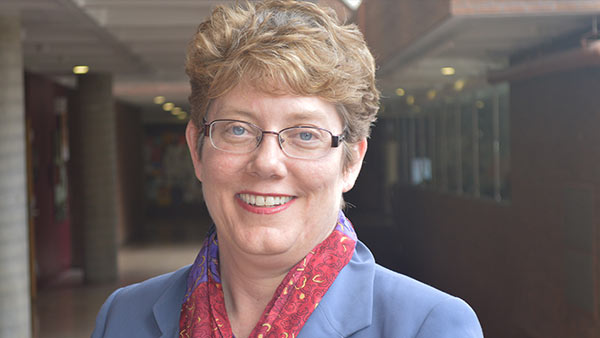June 21, 2023
Healthcare Saints: leading powerful change to transform healthcare
Jobs for health services leaders are poised to grow by 32% from 2019 to 2029, according to the U.S. Bureau of Labor Statistics.
In this fast-changing landscape, many organizations seek healthcare leaders who also understand complex systems of people and business and can lead effective change for their communities. These organizations include, among others:
- Regional and rural health settings
- Faith-based health systems
- Integrated health systems
- Post-acute care and long-term care facilities
- Ambulatory clinics
- Physician practices
- Insurance companies
These leadership roles demand knowledge and skills about the business of healthcare unlike anything healthcare has ever seen.
To fill this critical need, The College of St. Scholastica launched its highly anticipated Master in Healthcare Administration (MHA) in January 2023. The program’s vision is to develop dynamic, effective leaders who serve and advance the healthcare and well-being of people, organizations and communities by transforming health services.
A program for working professionals
The MHA program is designed to support working healthcare professionals from many different fields and experiences with a fully online degree program. It focuses on serving those who are looking to increase their leadership and business skills by seeking a master’s degree to advance their career. “If you really are certain you want to grow in your healthcare career, get an MHA,” said Dr. Susan E. McClernon, MHA program director. “You’ll get all the skills of an MBA but through a healthcare lens.”
The Stender School of Leadership, Business and Professional Studies program builds on the strengths of the existing MBA in Leadership and Change and incorporates aspects of the MS in Health Informatics program.
It also appeals to healthcare professionals who have been promoted into leadership positions but never had management or business training. “Often times we’re seeing them come back,” noted Dr. McClernon. “They had no time in clinical training to learn management and leadership skills.”
Leaders train dynamic leaders
Dr. McClernon, an experienced educator and industry professional, is assisted by expert College faculty and a diverse MHA Industry Advisory Board representing 28 health-related companies. This network of working healthcare executive leaders provides an in-depth industry perspective to the program and its students. Craig Ward, director of operations at Integrity Health Network, leads the MHA Industry Advisory Board. He attributes the program’s effectiveness to its innovative framework and applied curriculum.
MHA Industry Advisory Board members mentor students, guest lecture, and assist the MHA program director in developing a strong curriculum and faculty. They ensure that students are ready for the real world. “Leaders identify what is needed and focus on advancing health services in our world,” stated Ward.
Build a strong network
Students benefit from the active MHA Industry Advisory Board, which is a unique resource for an MHA program. “They are a wonderful gift to this program,” said Dr. McClernon. “They give students access to strong executive leaders in a broad range of the healthcare industry. They bring mentorship and a focus on experiential learning, applying theory to the field.”

The first MHA cohort
Dr. McClernon also brings her vast network to her role as director: “I have built connections with more than 300 healthcare organization and association contacts for my students over the past eleven years. They represent every kind of healthcare organization across the country. I continue to grow that network so it’s available to assist my students.”
The benefits are mutual, as MHA advisory board members value their experience working with students.
“I enjoy supporting the collaboration between healthcare professionals and educators so we can produce the best academic program to prepare the leaders of the future,” said Ward. “They will have the courage to lead the change and run towards an issue instead of away.”
Experiential learning focus
Course curriculum and experiential learning are designed to be completed in two or three years. The coursework and the final capstone project integrate the curriculum with students’ current professional roles. “Every one of them has challenges in their workplace they need to solve. Here, they apply their learning to their work and future career,” shared Dr. McClernon.
The fourteen synchronous and asynchronous online courses with a fall and spring cohort culminate in a capstone and graduation event on the Duluth St. Scholastica campus. The four-day event brings together the cohort for presentations, celebration and networking. “An important part of the whole experience is getting to know and learn from your colleagues,” explained Dr. McClernon. “We are building that kind of connection and collaboration.”
Visit css.edu/mha to learn more about how The College of St. Scholastica’s Master of Healthcare Administration could take your healthcare leadership career to the next level.


